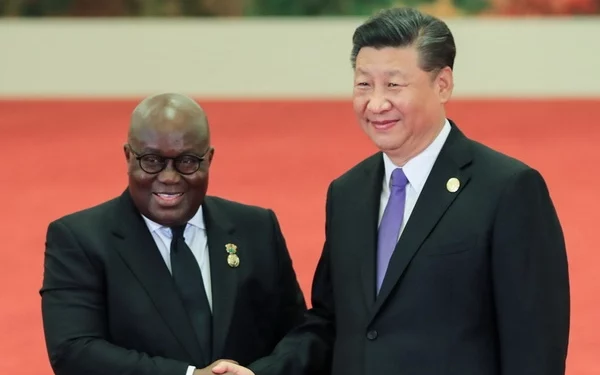China offers Ghana help to secure IMF bailout amidst economic challenges
The Chinese government has offered its assistance to Ghana in securing a balance of payments bailout from the International Monetary Fund (IMF), according to reports in the Financial Times.
The move has been seen as a strong indication of China’s commitment to ensuring the stability of Ghana’s economy, despite the short-term challenges the country faces.
The Chinese Finance Minister, Mr. Liu Kun, explained that his country’s confidence in Ghana’s long-term economic prospects meant that China had an obligation to help Ghana overcome its financial difficulties.
“The long-standing and prosperous relationship between Ghana and China imposes on us a responsibility to help,” he said. “Chinese authorities have confidence in Ghana’s economic management and its long-term economic viability.”
Mr. Kun added that China believed in promoting debt sustainability and sustainable development, indicating that any assistance provided to Ghana would be in line with China’s overall development strategy.
His comments came as Ghana’s Finance Minister, Ken Ofori-Atta, led a delegation to China to discuss debt restructuring and seek financial assurances for Ghana’s programme with the IMF.
The Ghanaian delegation included technical officials from the Ministry of Finance, the Ministry of Foreign Affairs, and the Bank of Ghana, and discussions with Chinese officials were said to have been positive.
Ghana is seeking to restructure $5.7 billion of its external debts, with China holding a third of the figure, amounting to $1.7 billion. The country’s total debt owed to external creditors is pegged at $29.2 billion, with Eurobonds accounting for $13.1 billion, multilateral accounts accounting for about $8.1 billion, and Paris Club countries accounting for $1.9 billion. Other creditors account for $3.2 billion.
While China’s offer of assistance has been welcomed, Ghana is still facing significant challenges in securing the necessary support to stabilise its economy. The government is hoping to secure parliamentary approval for three revenue bills, which are key requirements for securing a deal with the IMF.
The bills include the Income Tax Amendment Bill, the Excise Duty Amendment Bill, and the Growth and Sustainability Amendment Bill, which are expected to generate about GH¢4 billion annually.
In addition, negotiations with the Paris Club of creditors are said to be ongoing, with the Ghanaian government reporting that significant progress has been made.
Despite these positive developments, Ghana is still facing significant economic challenges, and the government will need to continue working closely with its creditors and international partners to secure the support it needs to ensure the long-term stability and sustainability of its economy.







